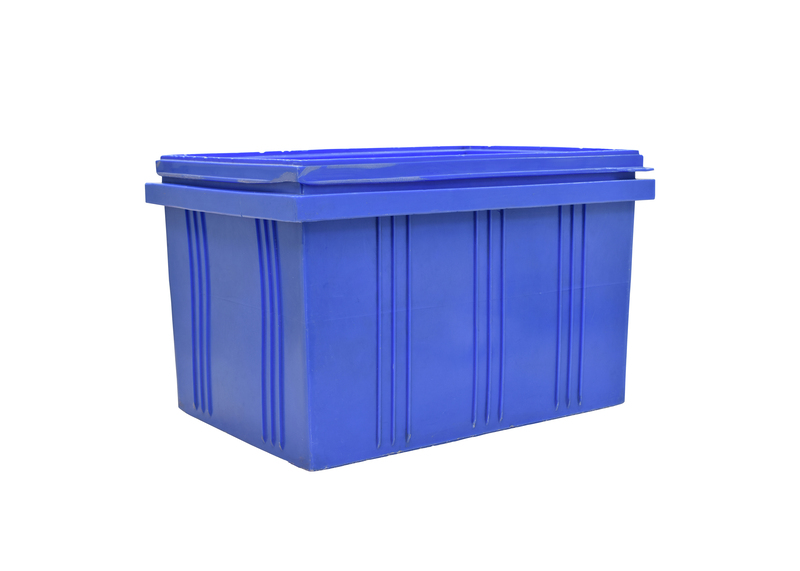Avoiding Disaster When Moving a Piano and Why Going Solo Isn't Worth It
Are you planning a move and considering relocating your piano by yourself? Think again. Pianos are not only one of the heaviest and most awkward household items to transport, but they are also extremely delicate. Successfully moving a piano requires special expertise, equipment, and care--far more than meets the eye. In this comprehensive guide, we will explore the risks, provide valuable tips for avoiding disaster when moving a piano, and explain why hiring professionals over a DIY piano move is always the best choice.
Understanding the Complexity: Why Moving a Piano Is Unique
Pianos come in all shapes and sizes--from grand pianos to uprights. But regardless of type, every piano combines immense weight with delicate, intricate mechanics. In fact, the average upright piano weighs between 300 to 500 pounds, while some grand pianos tip the scales at over 1,200 pounds. The internal structure is just as impressive, with about 10,000 moving parts, sensitive strings, and polished finishes that are easily scratched or damaged.
- Weight distribution: An unevenly distributed weight makes these instruments difficult to lift without tilting or tipping.
- Shape and size: Bulky dimensions can make navigating hallways, stairs, and tight spaces a logistical nightmare.
- Fragility: Intense internal tension and fragile materials increase the risks of damage--both to the piano and your property.
Most importantly, the deeply personal value and high cost of repair or replacement turn any piano move into a delicate operation. One sudden jolt or slip-up can result in disaster, costing thousands of dollars and potentially irreparable sentimental loss.

The Hidden Risks of a DIY Piano Move
Many people are tempted to save money by moving their piano themselves, especially during a standard household relocation. However, going solo rarely pays off. Here are the key dangers you face if you opt for a DIY piano move:
1. Serious Injury to Yourself or Helpers
Musculoskeletal injuries, crushed fingers, strained backs, or even broken bones are all too common when amateurs try to lift or maneuver these massive instruments. Given their odd shape and unbalanced weight, it's easy for the piano to tip or shift unexpectedly, endangering everyone involved.
- Stairs and tight corners can be particularly hazardous.
- Without proper lifting techniques, you may cause permanent physical damage.
- This risk skyrockets if you don't have the right moving equipment (like piano dollies, lifting straps, or thick blankets).
2. Potentially Catastrophic Damage to the Piano
Even the smallest scratch, dent, or bump can ruin a piano's delicate veneer or affect its sound. Internal mechanisms (like the hammers, strings, and pedals) are finely tuned and easily jostled out of alignment, leading to expensive repairs or irreparable harm.
- Unstable movement can cause tuning pins to slip or strings to break.
- Even minor damage to the frame can compromise the sound quality.
- Grand pianos are particularly vulnerable if not properly disassembled and reassembled.
3. Property Damage--Yours or Your Landlord's
Dragging a piano could gouge hardwood floors, rip carpeting, or destroy door frames and walls. Navigating staircases without professional knowledge can result in dents, scratches, and even structural damage.
4. Lack of Insurance Coverage
Most homeowner or renter policies won't cover a self-inflicted accident. If you accidentally drop the piano, seriously damage your property, or injure a helper, you could be facing huge out-of-pocket costs. Professional piano movers carry insurance specifically for such situations, providing peace of mind.
5. Ruined Relationships
Enlisting friends or family members to help may seem like a good idea, but it can quickly lead to frustration, arguments, and even injury. Moving a piano is stressful enough without added tension!
Why Hiring Professional Piano Movers Is the Smart Choice
Instead of risking injury, damage, and expense, consider the huge advantages of relying on expert piano movers:
1. Specialized Knowledge and Training
Professional piano movers receive in-depth training on the most effective and safe piano-moving techniques. They know how to dismantle, wrap, lift, transport, and reassemble a piano without risk.
- They understand how to distribute weight and balance the instrument properly.
- They assess potential obstacles (stairs, elevators, tight hallways) and plan accordingly.
- They use proven strategies to secure the piano in moving vehicles.
2. Premium Moving Equipment
Companies specializing in moving pianos are equipped with industry-specific tools: skid boards, heavy-duty dollies, non-slip gloves, and thick padding to prevent every bump and bruise. They also have reinforced ramps or hoists for stairs and can safely maneuver pianos through tough spaces.
3. Full Insurance and Liability Protection
A reputable piano mover provides full insurance coverage for both property damage and bodily injury, ensuring you are protected from the unexpected. This is especially important for valuable or antique instruments.
4. Efficiency and Time Savings
Moving a piano solo might take hours and multiple attempts. Professionals complete the task quickly and accurately, freeing you up for other important moving tasks. This efficiency is especially valuable during tight moving timelines.
5. Long-Term Cost Effectiveness
While hiring an expert costs more upfront, it's usually much cheaper than repairing or replacing a damaged piano--or covering medical or repair bills after a mishap.
Tips for Avoiding Piano-Moving Disasters
Whether you ultimately choose to invest in professionals or not, here are vital precautions everyone should consider for a safe move:
1. Assess Your Piano Type and Moving Route
- Upright pianos are more manageable than grands but still require at least three people and a dolly.
- Grand pianos often need to have their legs and lyre removed, the lid detached, and all pieces carefully wrapped.
- Map out the obstacles on your route in advance: stairs, doorways, corridors, tight turns, and elevators.
2. Use Proper Supplies
- Piano-specific moving blankets and straps
- Non-slip, heavy-duty gloves for grip
- Piano dolly or skid board
- Protective corner guards for your walls and doors
- Furniture sliders as needed
3. Disassemble with Care
- If needed, remove the pedals, lyre, or legs from grand pianos first.
- Always keep track of hardware in labeled bags.
- Wrap each component separately to avoid scratches or scuffs.
4. Wrap and Secure the Piano
- Wrap the body, keys, and lid with multiple layers of thick blankets.
- Use high-quality packing tape or straps to keep the blankets in place.
- Never lift the piano by its legs or delicate areas--always carry it from the bottom with the help of a dolly or team.
5. Protect Your Moving Environment
- Lay down protective runners on floors.
- Remove or secure rugs, mats, and cords in the walkway.
- Measure doorways ahead of time and remove doors if needed for extra clearance.
6. Go Slow and Communicate
- Constant communication between helpers is essential to avoid sudden shifts or slips.
- Move very slowly, especially on stairs or inclines.
7. Tune and Inspect After the Move
- Even with a flawless move, your piano may need to be tuned after arrival.
- Check for any signs of damage, misalignment, or new noises, and call a professional technician if needed.
How to Choose a Reputable Professional Piano Mover
With so much at stake, take time to research and hire a qualified, trustworthy piano-mover:
- Check Reviews: Look for consistently high ratings and positive customer testimonials related to piano moves (not just standard moving).
- Request Proof of Insurance: Never hire a mover who isn't fully insured and bonded.
- Get a Clear Quote: Ask for a detailed estimate that covers stairs, tight spaces, long carries, and insurance--never accept a vague price.
- Ask About Equipment: Confirm that they use piano-specific moving gear.
- Specialization Matters: Prioritize companies that specialize in, or have significant experience with, piano moving.
Frequently Asked Questions About Moving Pianos
Q: How Much Does It Cost to Move a Piano Professionally?
Prices vary based on piano size, type, distance, number of stairs, and complexity. Expect to pay $200-$1000+ for local moves, with extra for stairs or tight spaces. Long-distance or cross-country piano moves can range from $1,000 to $3,000 or more, depending on logistics.
Q: Can I Move a Small Keyboard or Digital Piano Myself?
Yes, lighter-weight digital pianos and keyboards can be moved by individuals. Still, always use padding and avoid stacking anything on top to prevent pressure damage to keys or electronics.
Q: Will Moving a Piano Affect Its Sound?
Almost every piano requires some tuning and minor adjustment following a move, due to vibrations, changes in humidity, and temperature fluctuations encountered during transport.
Q: How Early Should I Book a Piano Mover?
Most experts recommend scheduling professional piano movers at least 2-4 weeks in advance, especially during busy moving seasons (spring and summer) or for long-distance moves.

Conclusion: Avoiding Disaster When Moving a Piano Means Knowing When to Call the Pros
Moving a piano isn't like shifting a sofa or bookshelf. The blend of daunting weight, elegant craftsmanship, and irreplaceable value makes DIY piano moves a recipe for trouble. By recognizing the risks involved and understanding the magnitude of what's at stake--financially, emotionally, and physically--you can make the wise choice to invest in professionals equipped for the challenge. The price you pay for expert movers is minimal compared to the potential costs of calamity.
If you truly care about your instrument and your well-being, don't gamble with a solo move. Call qualified piano movers and move forward with confidence, knowing your treasured piano will arrive safe, sound, and ready to fill your home with beautiful music for years to come.
Key Takeaways: Why Going Solo When Moving a Piano Isn't Worth It
- Pianos are excessively heavy, delicate, and expensive to repair.
- DIY moves risk injury, property damage, loss of insurance coverage, and ruined relationships.
- Expert piano movers use specialized knowledge and equipment to prevent damage or catastrophe.
- Hiring professionals ultimately saves time, money, and stress.
- Your peace of mind, and your piano, are worth the investment.
Ready to relocate your piano? Put safety, security, and experience first. Don't risk disaster--trust the experts for a harmonious move!



